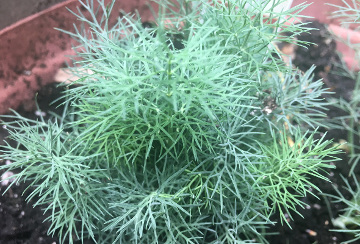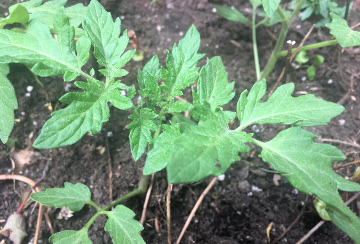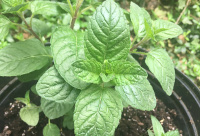
The Basics

I started winter basil many times using seeds from the windowsill pots (it's astonishing how effortlessly this plant grows), so I know a handful of dirt is enough to start plants indoors, but seed pods offer better growing conditions and minimize the mess.
The pods include compressed planting pellets complete with all the necessary nutrients the young plants need and have clear lids to maintain proper humidity and promote germination.
Place the trays in a well-lit area, but make sure to shield them from direct sunlight, which could be too harsh for the emerging seedlings.
Take off the lids once the plants start growing to avoid mold and mildew caused by high humidity.
Thin out the seedlings to one per pod, keep the soil consistently moist, and mist them regularly. Indoor air is too warm and dry for most plants.
Make sure to harden the seedlings before moving them to the garden, and be aware that starting seeds too early won't yield better outcomes. Plants become leggy and malnourished when they outgrow their pods.
Six to eight weeks is enough time for most annuals.

Germination Times

Plant germination times differ: some annuals sprout in a day, while certain perennials can take as long as three months.
Typically, annuals emerge within four to five days, have an almost perfect germination rate, and are quite tolerant of different growing conditions.
Most vegetables such as tomatoes, peppers, eggplants, and squashes, and easy annuals like zinnias, marigolds, parsley and dill, fall into this laid-back category.
Slower-growing annuals like begonias, petunias, impatiens, bells of Ireland, and larkspur take two weeks to sprout and up to three months to be garden-ready.
On average, perennial seeds need three weeks to germinate, and when they finally do, their produce small, fragile and slow growing seedlings. The success of the latter depends on the hardening process, with only a few making it past the transition week.
While it may seem like a lot of effort, starting perennials from seeds offers some advantages.
One can find rare plant varieties not sold in nurseries, and if the plants thrive in their environment, they grow larger and stronger than their greenhouse counterparts.
Perennials that start well from seeds are often generous self-seeders themselves, growing your future plant supply.
If you're looking to start perennials, delphiniums, foxgloves, penstemons, hollyhocks, pinks, yarrows, and salvias are good options.
